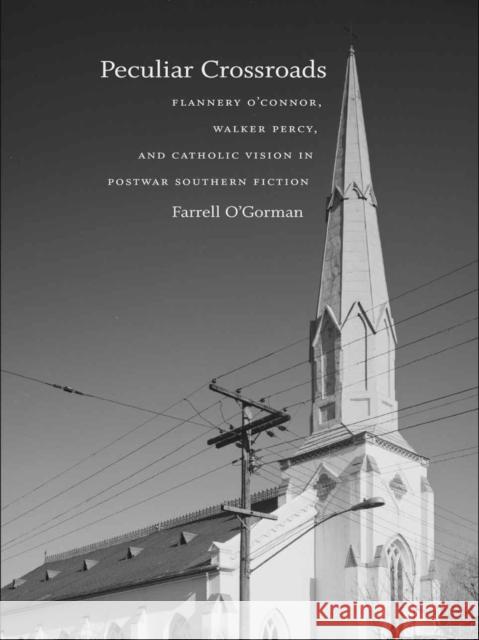Peculiar Crossroads: Flannery O'Connor, Walker Percy, and Catholic Vision in Postwar Southern Fiction » książka
Peculiar Crossroads: Flannery O'Connor, Walker Percy, and Catholic Vision in Postwar Southern Fiction
ISBN-13: 9780807133354 / Angielski / Miękka / 2008 / 272 str.
Peculiar Crossroads: Flannery O'Connor, Walker Percy, and Catholic Vision in Postwar Southern Fiction
ISBN-13: 9780807133354 / Angielski / Miękka / 2008 / 272 str.
(netto: 120,93 VAT: 5%)
Najniższa cena z 30 dni: 125,24
ok. 16-18 dni roboczych.
Darmowa dostawa!
In Peculiar Crossroads, Farrell O'Gorman explains how the radical religiosity of both Flannery O'Connor's and Walker Percy's vision made them so valuable as southern fiction writers and social critics. Via their spiritual and philosophical concerns, O'Gorman asserts, these two unabashedly Catholic authors bequeathed a postmodern South of shopping malls and interstates imbued with as much meaning as Appomattox or Yoknapatawpha. O'Gorman builds his argument with biographical, historical, literary, and theological evidence, examining the writers' work through intriguing pairings, such as O'Connor's Wise Blood with Percy's The Moviegoer, and O'Connor's A Good Man Is Hard to Find with Percy's Lancelot. An impeccable exercise in literary history and criticism, Peculiar Crossroads renders a genuine understanding of the Catholic sensibility of both O'Connor and Percy and their influence among contemporary southern writers.
The two southern fiction writers most informed by orthodox religion, Flannery OConnor and Walker Percy were also among the most influential southern writers of their generation. In Peculiar Crossroads, Farrell OGorman explains that the radical religiosity of OConnor and Percys vision is precisely what made them so valuable as both southern fiction writers and social critics. Via their spiritual and philosophical concerns, OGorman asserts, these two unabashedly Catholic authors bequeathed to even their most unorthodox successors a postmodern South of shopping malls and interstates imbued with as much meaning as Appomattox or Yoknapatawpha.OGorman builds his argument with biographical, historical, literary, and theological evidence, examining the two writers work through intriguing pairings-such as OConnors Wise Blood with Percys The Moviegoer, and OConnors A Good Man Is Hard to Find with Percys Lancelot. He traces the influence exerted on their thought by the mid-century transatlantic Catholic Revival and by their relationships with southern modernists Caroline Gordon and Allen Tate. Ultimately, Percy and OConnor embraced a Christian existentialist view that led them to dissent from both the historical, tragic mode of the Southern Renascence and the absurdist apocalypticism of much postwar American fiction. They were, OGorman concludes, transitional figures, more optimistic about their cultures future than the modernists and more optimistic about the truth-telling capacities of language and literature than the postmodernists. An impeccable exercise in literary history and criticism, Peculiar Crossroads renders a genuine understanding of the Catholic sensibility of both OConnor and Percy and their influence among contemporary southern writers.











